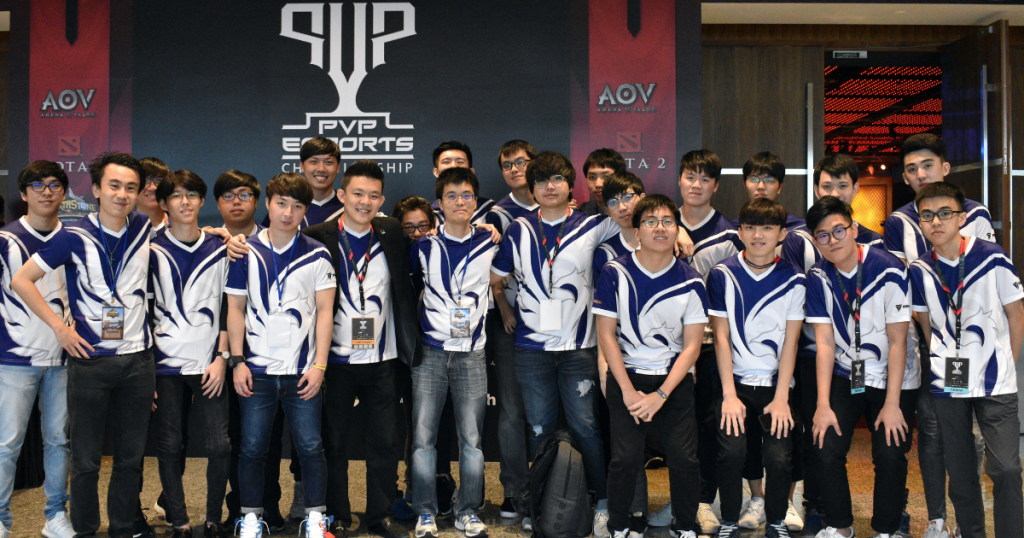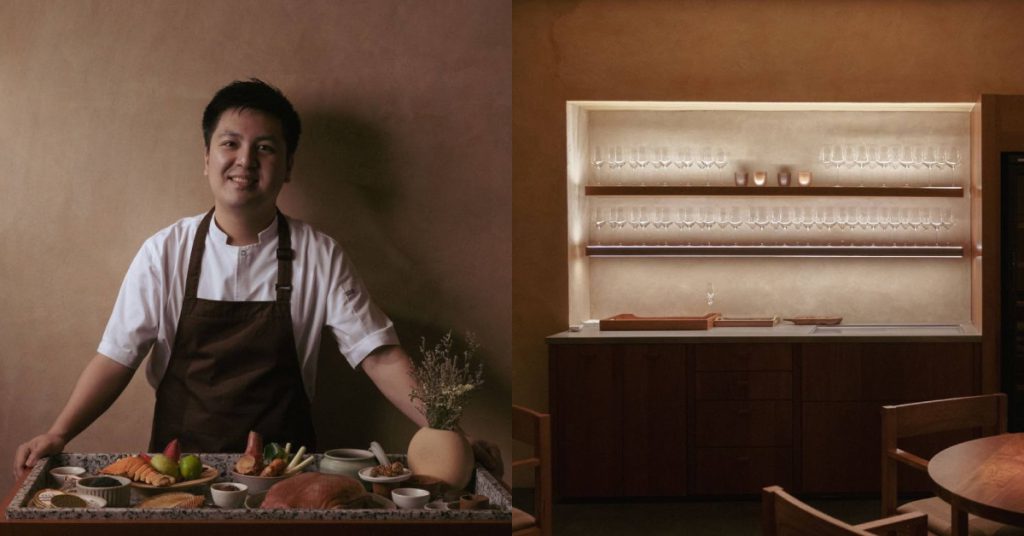In June, *SCAPE organised the League of Legends (LoL) EXP Summer Camp as part of the *SCAPEesports’ Exposure & Xperience Programme 2019 (EXP2019).
Before that, the *SCAPE’s Summer Camp series camp had concluded with a Mobile Legends: Bang Bang camp.
What’s interesting about the programme is that, besides the first-of-its-kind esports camps, there are workshops and training sessions aimed at bettering participants looking to establish a career in esports.

16-year-old Justin Yong, who attended the LoL camp found the ’tilt’ management talk by Samuel “Sequinox” Chan, a professional Hearthstone player, useful.
He had experienced ’tilt’ – an emotional state where one loses his cool over losing multiple games or facing toxic players – in a game before.
Justin shared that his school has held talks on how to manage negative emotions and they synergised with what was discussed during the ’tilt’ management session.
He learned during the session that he should stay positive, as there is no point in losing his cool, and he should be focusing on improving his gameplay instead.

The student was pleasantly surprised that there are such programmes in Singapore and he was happy knowing that there are many opportunities in within the esports industry.
Another LoL camp participant, Nicholas Tan, observed that people behave differently online and offline, and that their online personas don’t translate to their offline personalities.
The 23-year-old Singapore Polytechnic student learned that if he allowed toxic players to get under his skin, resulting in him ’tilting’, it will only distract him from achieving the objective of the game.
Samuel’s talk on ’tilt’ management has taught him to calm down and re-focus on the objective if he ever finds himself in that situation.

The professional gamer is part of Resurgence, an esports organisation that is home to some of Singapore’s renowned gamers and streamers.
Founded by Jayf ‘Babael’ Soh, a Singaporean who believes that a career in esports is viable and enables athletes to make a living out of their passion.
Game Enough To Start

“Gaming has been a big part of my youth,” the Ngee Ann Polytechnic alumnus said.
“It was a way for my brothers and I to spend time together and I thoroughly enjoyed those days.”
The first game Jayf played was Pokémon on the Gameboy when he was seven years old.
He got into PC gaming with popular MMORPG (massively multiplayer online role-playing game) Maplestory, and subsequently, Defense of the Ancients (DotA) when it was still a mod on Warcraft III.

The 28-year-old revealed that he was never a “real competitor” apart from participating in some small-scale tournaments.
“I quickly realised that I wasn’t cut out for competition and didn’t continue playing competitively,” he told us.
“Regardless, my first experiences with competitive video games were still very exciting, and my interest in the then-tiny industry was piqued.”
In 2012, he went to the now-defunct Garena Stadium to support a friend who was competing.
That was when he first witnessed esports as a spectator.
As commentators explained the game to the audience and engaged the crowd, the first thought he had was that he could do a better job.

Little did Jayf know that this event was the spark that began his illustrious esports career.
In the past seven years, he has been a game commentator, the Esports & Community Manager at Asiasoft, and has worked on a Blizzard game, Heroes of the Storm.
When he first started out as a commentator, he was paid only S$2.50 per hour.
“I didn’t care about pay because I really enjoyed what I was doing, and this was by-and-large the state of SEA esports back in 2012,” Jayf shared with us.
“My remuneration improved in tandem with my skill and eventually, I was able to command a handsome payout when I commentated at the World Championship in BlizzCon, California.”
Resurgence Of Determination

When asked what did he do as a commentator, Jayf explained that in video game commentary, there are two roles: play-by-play and colour.
The play-by-play commentator describes the gameplay while the colour commentator explains.
Both roles are not mutually exclusive, he added, but having two commentators, one in each role, is the most common and successful combination in esports.
“I really enjoyed working the crowd as a commentator and gravitated to play-by-play commentary, which focuses on hyping up moment-to-moment gameplay,” Jayf recalled.
When he introduced himself as a games commentator, he said most people “were confused yet excited”.
Jayf explained that there are some similarities between video game and traditional sports commentary, but most video games are more fast-paced and flashier to watch.
“Many wondered how I was able to describe and break down what was happening on-screen so clearly and succinctly,” he said.
Resurgence began as a local amateur Heroes of the Storm team he managed.
At that time, he would cover part of their expenses out of his pocket because he wanted them to be able to keep training and improving.

He then decided to expand the team into a business in 2017.
“Along the line, I had come to realise that remuneration for professional players was far from adequate, and I decided that it was time for change,” he said.
“I saw an opportunity to do things differently, armed with my dual background in both competition and business in esports.”
He found a lot of affinity with the name ‘Resurgence’ and stuck with it.

Jayf explained, “Singapore had a great early start in esports with outstanding global achievements and at some point we housed famous teams in team houses.”
“Somewhere along the line, the industry lost its edge.”
To him, the word, “resurgence”, means positive comeback and it reflects his vision of returning Singapore to the forefront of esports.
“The name is also an homage to my late brother, whose passing galvanised my decision to retire from video game commentary.”
Supporting The Carries Of The Industry
Jayf observed that in 2012, the industry was “relatively small” because esports was seen as “niche”.

“When I started Resurgence in 2017, many teams were still unable to generate sufficient revenue and thus unable to properly pay players,” he said.
When asked what were the challenges he faced then, he recalled, “Classic pessimism. A lot of people said we weren’t going to make it because there was no successful precedent.”
The naysayers had challenged them to “survive a year” because they didn’t believe that Resurgence could be sustainable.
“Many of my peers in the industry also criticised me for ‘spoiling the market’ by striving to provide monetary remuneration to professional players.”
Jayf stated, “Resurgence came into the market with the belief that we could generate revenue and support players who wanted to go full-time.”
The firm believes that if an athlete is competing in a healthy competitive landscape and is the best locally, then they deserve the best.
“Resurgence started providing a benchmark for this concept.”
In June, Resurgence celebrated their second anniversary and are enjoying the support of their “fantastic group of sponsors”, Jayf told us.
“I’d like to believe that we have proved all the doubters wrong.”
He noted that the esports industry in Singapore is seeing more traction over the years as more brands are getting involved in it.
Tournament participation has also increased compared to two years ago and physical attendance at esports events last year was “fantastic”, Jayf described.

Just look at events like PVP Esports and Gamestart, he added.
Esports is also enjoying wider coverage by mainstream media, even more so as the government is putting together a feasibility study and plan for esports in Singapore.
Jayf mentioned the time Prime Minister Lee Hsien Loong attended a grassroots gaming event and how various agencies are coming together to discuss the impact esports has in the public sphere.
“The perception of gaming is starting to change and it is a result of a collective effort from all parties within the esports industry,” he said.
“It will still take some time to gain widespread recognition but I think we’re already moving in the right direction.”

With talks of esports possibly becoming a medal event in the Olympics and the buzz surrounding the inclusion of esports in the upcoming SEA Games, we asked Jayf what he thought about it.
He noted that esports has always thrived within itself as a spectator sport and entertainment, adding that having the recognition from traditional sports community is “very encouraging”.
“It is heartening to see that Singapore is fielding a team in the upcoming SEA Games and we are happy to be nominated for it in Arena of Valor and Starcraft 2,” said Jayf.
GLHF

Jayf lends his wisdom and influence to the local gaming scene as seen in Resurgence’s partnership with *SCAPE for EXP2019.
“I knew Resurgence had to play a part in healthy community building for esports,” he shared.
“The various programmes we designed allowed the sharing of knowledge and experience while building relationships with and within the communities which already exist in Singapore.”
Jayf will be imparting the knowledge on video game commentary he’s gleaned over the years through the workshops he will be conducting at EXP2019.
These days, Jayf is a casual player of games like Dota 2, so getting ’tilted’ is not an issue he frequently faces.

However, that can threaten the careers of the Resurgence athletes under his wings.
Obviously, having excellent in-game skill is necessary in competitive gaming, but ’tilt’ can take down even the strongest player, he said.
“We have a very strong emphasis on avoiding ’tilt’ in our competitive divisions.”
“Generally speaking, we try to avoid tunnel vision, and encourage players to frame obstacles as learning opportunities,” he continued.
“‘Tilt’ is a near-universal experience that goes hand in hand with any high-stakes competitive system.”
“What we can do is introduce measures to mitigate the signs and symptoms of ’tilt’,” he shared.
When it comes to encountering toxic behaviour, or even being a source of toxicity, he advised that it’s easier to combat it if one is aware and conscious of it.
Under his leadership, Resurgence’s various divisions have racked up a number of accomplishments.
Hearthstone players, SGAhIce and lambyseries secured 1st and 3rd places, respectively, at the 2019 SEA Games Singapore Selection, and SGAhIce will be representing Singapore at the upcoming SEA Games.

The LoL team have been performing consistently well, coming in 2nd and 3rd for this year’s League SEA Tour Summer and League SEA Tour Spring tournaments.
They also represented Team Singapore last year at the Asian Games Southeast Asia Qualifier where they finished 2nd place.
At the Mobile Legends Professional League this year, Resurgence’s Mobile Legends: Bang Bang team came in 4th place at the MPL – SG/MY Season 3 competition.

For one of the largest event in esports, Dota 2’s The International 9 (TI9), the Resurgence team managed to score a place into the Southeast Asia Qualifiers.
Despite not qualifying for the Group Stage at TI9, they have managed to beat out many exceptional SEA teams, some of which consist of players who have had TI experience.
Resurgence has been busy this year, releasing their 2019 competitive jersey and music video in the first half of 2019.
The firm continues to look for new ways to bring esports to the community, and they are always hiring, Jayf said.
“We’re constantly expanding and are looking to grow in the region.”
“Resurgence has built a well-established presence in Singapore over the past two years, so we’re looking abroad to Asia Pacific and more.”
He added, “I’m excited for what we will be able to achieve in new regions and communities, and the amount of support we will be able to provide to aspiring professionals all over Asia.”
Featured Image Credit: Resurgence
Also Read: This Millennial Is The 2nd-Gen ‘Otah-ku’ Behind The Lee Wee & Brothers Chain










